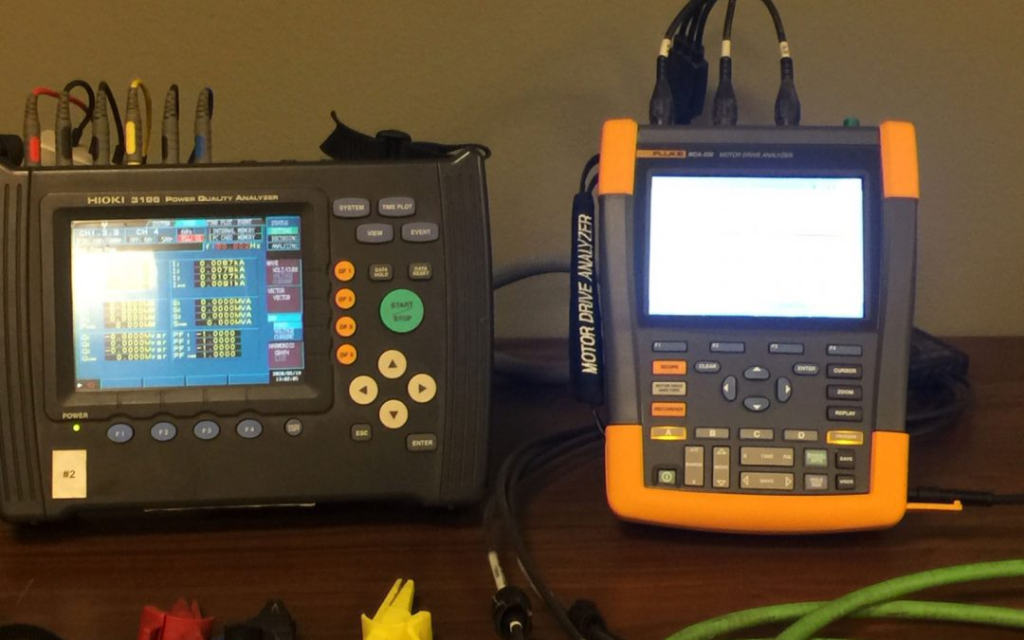In the intricate web of modern industrial operations, where every watt matters and downtime is often costly, ensuring a stable and high-quality power supply is paramount. Power quality analyzers emerge as indispensable tools in this domain, serving as the vigilant guardians of electrical systems’ efficiency, reliability, and safety. In the dynamic landscape of industrial settings, where fluctuations, harmonics, and disturbances lurk, understanding and managing power quality is not just advantageous but imperative. This blog delves into the pivotal role of power quality analyzers in industrial environments, elucidating their significance in optimizing operations, preventing disruptions, and safeguarding valuable assets.

Understanding Power Quality
Before delving into the role of power quality analyzers, it’s crucial to grasp the concept of power quality itself. Power quality refers to the suitability of electrical power to consumer devices. It encompasses various parameters such as voltage magnitude, frequency, waveform distortion, and interruptions. In industrial settings, where sophisticated machinery and sensitive equipment are ubiquitous, even minor deviations in power quality can have profound repercussions. These can range from reduced efficiency and premature equipment failure to compromised product quality and safety hazards.
The Complex Industrial Environment
Industrial facilities constitute a complex ecosystem of machinery, motors, controllers, and automation systems, all interconnected through a vast network of electrical infrastructure. Any anomaly in the power supply can reverberate across this ecosystem, leading to cascading effects. Voltage sags, swells, harmonics, transients, and interruptions are among the common power quality issues encountered in industrial environments. Identifying, analyzing, and rectifying these issues swiftly is imperative to maintain operational continuity and prevent costly downtimes.
The Versatility of Power Quality Analyzers
Power quality analyzers serve as the frontline defense against power quality anomalies. These sophisticated instruments are designed to monitor, record, and analyze various parameters of electrical power in real-time. From voltage fluctuations to harmonic distortions, power quality analyzers offer comprehensive insights into the health of electrical systems. Their versatility enables them to be deployed across diverse industrial applications, including manufacturing plants, data centers, refineries, and utilities.
Optimizing Operational Efficiency
One of the primary benefits of power quality analyzers is their ability to identify inefficiencies within electrical systems. By continuously monitoring power parameters, these analyzers can pinpoint areas of excessive energy consumption, voltage imbalances, or inefficient equipment operation. Armed with this data, industrial operators can implement targeted strategies to optimize energy usage, improve system performance, and reduce operational costs. Moreover, by identifying and mitigating power quality issues proactively, the risk of unexpected breakdowns and production losses is significantly minimized.
Preventing Equipment Damage and Downtime
In industrial settings, where downtime can translate into substantial financial losses, preemptive maintenance is key. Power quality analyzers play a pivotal role in this regard by detecting early warning signs of equipment degradation or impending failures. By monitoring parameters such as voltage fluctuations, overheating, and harmonic distortions, these analyzers provide invaluable insights into the health of electrical assets. Timely intervention based on this data enables proactive maintenance, preventing costly equipment damage and unplanned downtimes.
Ensuring Compliance and Safety
Regulatory compliance and safety standards are non-negotiable aspects of industrial operations. Power quality analyzers facilitate adherence to these standards by ensuring that electrical systems meet specified performance criteria. By continuously monitoring parameters such as voltage stability, harmonic content, and waveform integrity, these analyzers help validate compliance with industry regulations and guidelines. Moreover, by identifying potential safety hazards such as insulation breakdowns or ground faults, they contribute to creating a secure working environment for personnel.
Real-World Applications
The utility of power quality analyzers spans across a myriad of industrial applications. In manufacturing plants, these analyzers help optimize production processes by ensuring consistent and reliable power supply to machinery and equipment. In data centers, where uptime is of paramount importance, they play a crucial role in safeguarding critical IT infrastructure against power disturbances. Similarly, in renewable energy installations such as solar and wind farms, power quality analyzers assist in integrating clean energy sources seamlessly into the grid while maintaining grid stability.

Conclusion
In the relentless pursuit of operational excellence and productivity, industrial enterprises cannot afford to overlook the significance of power quality management. Power quality analyzers emerge as indispensable assets in this endeavor, offering real-time monitoring, analysis, and optimization of electrical systems. By enabling proactive maintenance, optimizing energy usage, and ensuring regulatory compliance, these analyzers empower industrial operators to enhance efficiency, reliability, and safety across their operations. As the industrial landscape continues to evolve, the role of power quality analyzers will only become more pronounced, driving innovation and resilience in the face of dynamic challenges.
For more insights into power quality management solutions tailored to industrial needs, visit Elecnova Europe today.

